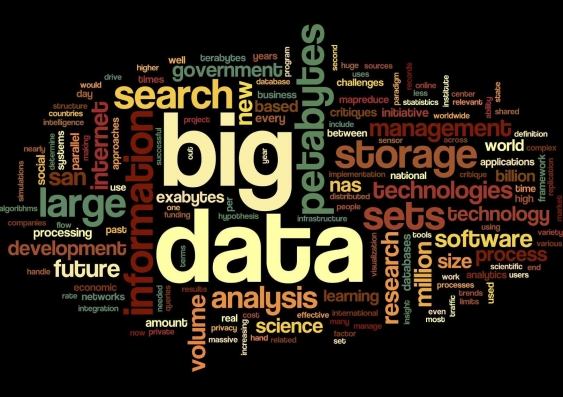Data fusion: John Roberts on the new frontline of marketing
John Roberts is a professor of marketing at UNSW, with a joint appointment at London Business School. He spoke to Julian Lorkin about the impact of big data in marketing.
John Roberts is a professor of marketing at UNSW, with a joint appointment at London Business School. He spoke to Julian Lorkin about the impact of big data in marketing.

John Roberts is a professor of marketing at UNSW Business School, with a joint appointment at London Business School. He has extensive senior executive experience and has been a visiting professor at Stanford, MIT, the University of Hamburg, and the Hong Kong University of Science and Technology. Roberts spoke to Julian Lorkin for BusinessThink.
BusinessThink: The TV series Madman may be coming to an end but the marketing theory that began in that era is still with us. Once it was all about a great advert in the newspaper and then we moved on to a good colour TV advert. Before long we had loyalty cards and recently we've had digital advertising on our computers. Now, marketing companies want to move forward to a world where data mining and targeted adverts are king. So, how do companies understand customers in what's increasingly tomorrow's world?
John Roberts: There's a lot more data coming at marketers today and so marketers can learn about their customers – particularly what their customers do – a lot more easily because the data is recorded and can be analysed.
BT: I'm told that "data fusion" is almost a holy grail. What is it and why is it so important?
Roberts: Data fusion: If I'm going to understand you as one of my customers, I am going to learn about you from a lot of different sources. I am going to learn about you from what you do, I am going to learn about you from your credit cards, I am going to learn about you from your mobile, from the searches you do on Google. And if I can put those pieces together, I'll have a much more complete view of you than if I can only look at them separately. So if I want to really understand [someone], I have to be able to know that the person who did that Google search is the same person who is going to shop in my store one week later.
BT: And there's a lot of consumer push back isn't there?
Roberts: There can be consumer push back against the ability of marketers to understand them and to address their needs better because they may feel their privacy is being invaded. For example, they may feel as though they have been manipulated.
I think there are two issues involved. One is that there's an off spin of equation here: you're giving me benefits because you understand me better and you're giving things that better meet my needs. To the extent that I do that, you are going to be actually happier with me. For example, Tesco is the UK's biggest retailer and does a terrific job of understanding its customers and targeting offers and products to meet them. So you're happier for me to use that knowledge because you're getting some benefit from it.
I guess the second issue is that there's a cost, and the cost to the consumer is that they feel they are being observed. They feel less free, they may feel manipulated, and they may be manipulated. I think the community is doing a reasonably good job of putting regulations in place so that I, as a marketer, can't market to you unless I have your permission. And I think that is an ongoing work in progress, where we have to keep on making sure, as a community, we protect ourselves and our privacy.
BT: You briefly mentioned Tesco. When their loyalty card was launched nearly two decades ago, it was a marketer's dream of suddenly collecting all this information. But where's the loyalty, because everybody has them now? And, in particular, if it comes down to Frequent Flyer cards, which are in effect another type of loyalty card, customers are getting very cynical about them. Why should they actually be loyal?
Roberts: Loyalty cards are a terrific example of how marketing is changing. It's not so much the loyalty card anymore as the loyalty relationship, and so the card is just a manifestation which says you, the customer, have a relationship with me, the marketer. But if I can better meet your needs by better understanding your behaviour from the shopping and search you do, then I am actually in a very strong position.
Loyalty is bigger than it ever was, but the loyalty card itself is probably less important if just having a card saying that you are a Qantas Frequent Flyer really means a lot less. But if Qantas [could] now understand that you would love to be able to use your work Frequent Flyer miles to have a holiday with your family, and they could tailor such a holiday, and tailor me a different one, then that's very valuable.
Read the full interview at BusinessThink.